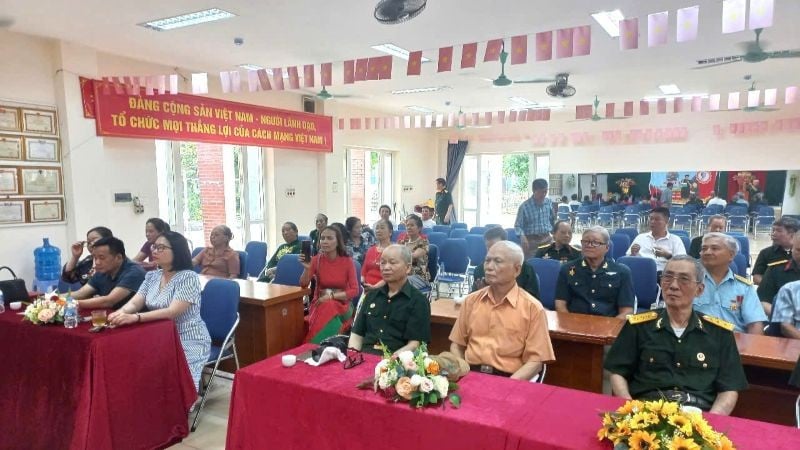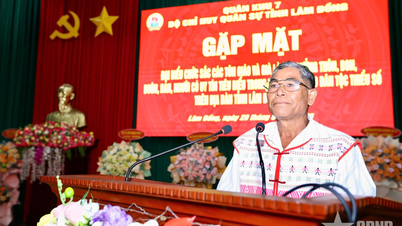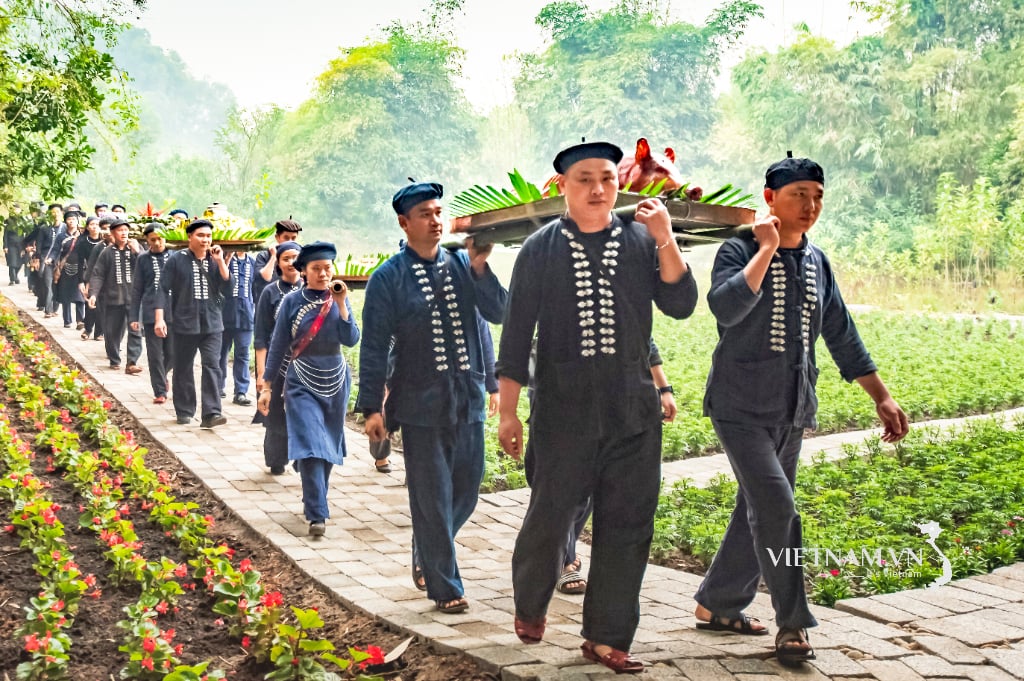Scene of a meeting of a residential group in Tu Liem ward, Hanoi . (Photo: PV)
Accordingly, reviewing and streamlining the payroll in conjunction with restructuring and improving the quality of the team of cadres, civil servants and public employees at the commune level to meet task requirements, ensuring that within a period of 5 years, it is basically in accordance with regulations.
The Government also regulates the termination of the use of part-time workers at the commune level; assigns local authorities to consider and arrange part-time workers at the commune level who meet the requirements of the tasks to participate in work in villages and residential groups; and implements a layoff policy for part-time workers at the commune level who are not assigned work according to regulations.
Based on the population size, natural area, and socio -economic development level of commune-level administrative units, the Government directs the allocation of total local government staff at the commune level to localities (expected to be about 32 staff/1 commune level on average). On that basis, the provincial local government is assigned to decide the number of staff for local government at each commune-level administrative unit in the area in accordance with practical requirements.
Also according to the new regulations, part-time workers in villages and residential groups will be able to participate in compulsory social insurance from July 1, 2025. At the same time, the regulations clearly state that part-time workers in villages and residential groups with no more than 3 positions (including Party cell secretary, village or residential group head, head of the front work committee) are entitled to monthly allowances.
Accordingly, when participating in compulsory social insurance, village chiefs will enjoy the following benefits: sickness, maternity, retirement, death, occupational accident and disease insurance according to the provisions of the Law on Labor Safety and Hygiene 2015.
For villages with 350 households or more; residential groups with 500 households or more; villages and residential groups belonging to key commune-level administrative units with complicated security and order issues according to decisions of competent authorities; villages and residential groups belonging to commune-level administrative units in border and island areas, the allowance fund is allocated at 6.0 times the basic salary.
In case a village with 350 or more households is converted into a residential group due to the establishment of a commune-level urban administrative unit, the allowance fund shall be kept at 6.0 times the basic salary.
For villages and residential groups not subject to the regulations as mentioned above, the allowance fund is allocated at 4.5 times the basic salary.
In case a part-time worker at the commune, village or residential group level concurrently performs the duties of another part-time worker at the commune, village or residential group level, he/she shall receive a concurrent allowance equal to 100% of the allowance prescribed for the concurrent position.
However, the specific benefits for each position will be based on: the allowance fund allocated by the central budget to each village and residential group; the budget source for salary reform; and the specific situation of each village.
Through that, the People's Committee submits to the Provincial People's Council to regulate the allowance level of each non-professional position at the village level, including village chief and residential group leader.
According to nhandan.vn
Source: https://baotuyenquang.com.vn/xa-hoi/202509/chinh-sach-moi-cho-truong-thon-to-truong-dan-pho-29b0e16/




![[Photo] The 1st Congress of Phu Tho Provincial Party Committee, term 2025-2030](https://vphoto.vietnam.vn/thumb/1200x675/vietnam/resource/IMAGE/2025/9/30/1507da06216649bba8a1ce6251816820)
![[Photo] Panorama of the cable-stayed bridge, the final bottleneck of the Ben Luc-Long Thanh expressway](https://vphoto.vietnam.vn/thumb/1200x675/vietnam/resource/IMAGE/2025/9/30/391fdf21025541d6b2f092e49a17243f)
![[Photo] Solemn opening of the 12th Military Party Congress for the 2025-2030 term](https://vphoto.vietnam.vn/thumb/1200x675/vietnam/resource/IMAGE/2025/9/30/2cd383b3130d41a1a4b5ace0d5eb989d)
![[Photo] General Secretary To Lam, Secretary of the Central Military Commission attends the 12th Party Congress of the Army](https://vphoto.vietnam.vn/thumb/1200x675/vietnam/resource/IMAGE/2025/9/30/9b63aaa37ddb472ead84e3870a8ae825)
![[Photo] President Luong Cuong receives President of the Cuban National Assembly Esteban Lazo Hernandez](https://vphoto.vietnam.vn/thumb/1200x675/vietnam/resource/IMAGE/2025/9/30/4d38932911c24f6ea1936252bd5427fa)



































































































Comment (0)